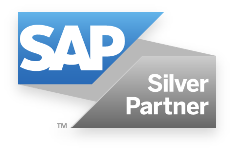Why would a Finance Director need SAP Business One?
One of the big advantages of using an ERP system like SAP Business One is the greater efficiency it delivers across the whole business. The Finance Director knows he can quickly quantify all aspects of the business. For example, making monthly reporting packs and being able to close periods that much quicker and easier.
But there are other important aspects of working from a single, integrated database. Not only is speed and flexibility increased, there is the added benefit that business implications can be realised much quicker. Purchasing raw materials can be done at more advantageous times, for example. From an income perspective, an integrated system means that sales (both forecasts and actual sales) show up in the system immediately so the business always has an up to date financial position to work from.
An important element in having total control of a business is the control that SAP Business One can give a Finance Director. Having a high level view of the business allows them to make decisions in light of all possible factors, not just those they currently have close to hand.



